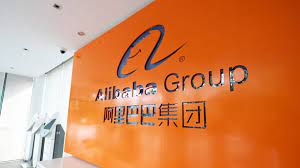Since the government’s regulatory crackdown on the sector started more than two years ago, China’s largest tech businesses have lost more than $1 trillion in value—equivalent to the entire Dutch economy.
After the People’s Bank of China (PBOC) hinted that a change in course may be underway, investors are now expecting that the stringent regulations that have stifled growth since late 2020 will start to relax.
The majority of the issues affecting platform companies’ financial operations, according to the central bank, have been resolved. As a result, regulators will now turn their attention to the industry as a whole rather than any particular company.
The world’s largest video game business, Tencent Holdings, and e-commerce giant Alibaba Group were hailed by the state planner on Wednesday for their contributions to China’s technological advancement. This is just another indication that the government is once again warming to the technology industry.
Analysts predict that the cancellation of Ant Group, a subsidiary of Alibaba,’s $37 billion initial public offering (IPO) in November 2020 will signal the beginning of a comprehensive regulatory crackdown on mainland China’s internet companies, which had expanded quickly in size and influence.
Since then, the market value of the Hong Kong-listed stocks of Alibaba Group, Tencent, and Chinese food delivery company Meituan, search engine provider Baidu Inc, and e-commerce site JD.com has decreased by around $1.1 trillion.
Between 40.4% and 71% of the five companies’ share values have fallen throughout that time.
Value destruction Hong Kong’s technology companies have risen 4.1% since Monday as investors bet that a regulatory environment that is loosening will improve profitability, but some analysts have issued a warning.
“Mega-cap tech companies will allocate increasingly large amounts of capital expenditure towards developing generative AI technologies and products in a hostile external environment, potentially impacting profitability,” Redmond Wong, Saxo Markets strategist in Hong Kong, said.
The current valuations will last “until we see more supporting policies from authorities,” Steven Leung, director of sales at UOB Kay Hian.

















